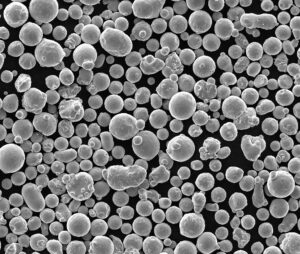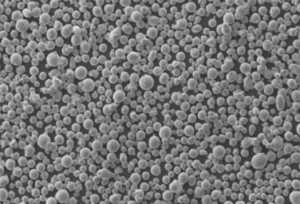Introduction
Titanium aluminide powder, a remarkable intermetallic compound, has gained substantial attention in recent years for its exceptional properties and a wide range of applications. This innovative material offers a unique combination of lightweight, high strength, and excellent high-temperature performance, making it an ideal choice for various industries. In this article, we will explore the fascinating world of titanium aluminide powder, its properties, production methods, applications, advantages, challenges, safety considerations, and future prospects.
What is Titanium Aluminide Powder?
Titanium aluminide powder is an intermetallic compound composed of titanium and aluminum. It exhibits a crystal structure based on the gamma-TiAl phase and has a stoichiometric composition of Ti3Al. This advanced material was initially developed for high-temperature applications, but its exceptional properties have led to its widespread adoption in diverse industries.
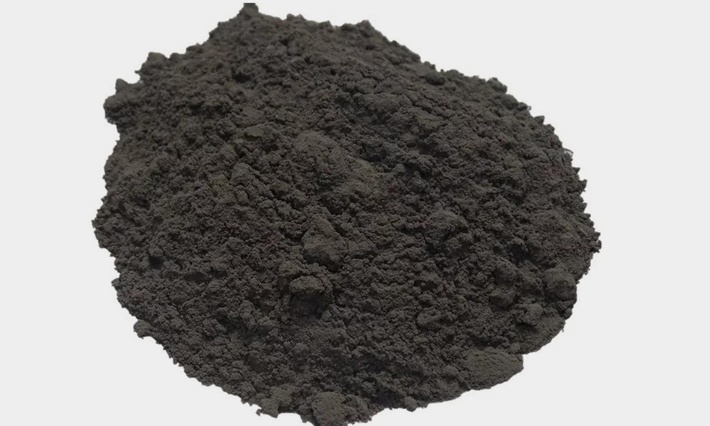
Properties of Titanium Aluminide Powder
Lightweight and High Strength
One of the most outstanding features of titanium aluminide powder is its exceptional strength-to-weight ratio. It is significantly lighter than traditional nickel-based superalloys while maintaining remarkable strength, making it an ideal choice for weight-sensitive applications.
Excellent High-Temperature Performance
Titanium aluminide powder exhibits excellent stability and strength at elevated temperatures. It can withstand temperatures up to 800°C (1472°F) and maintains its mechanical properties even at extreme conditions, making it a prime candidate for high-temperature applications.
Oxidation Resistance
Another crucial property of titanium aluminide powder is its remarkable resistance to oxidation. It forms a protective oxide layer at high temperatures, preventing further degradation and ensuring enhanced longevity in harsh environments.
Low Thermal Expansion
Titanium aluminide powder demonstrates low thermal expansion, which is advantageous for applications requiring dimensional stability and resistance to thermal cycling.
Production Methods of Titanium Aluminide Powder
Mechanical Alloying
Mechanical alloying is a widely used method to produce titanium aluminide powder. This process involves the grinding and blending of titanium and aluminum powders in a controlled environment to achieve a homogeneous mixture, which is subsequently consolidated and sintered.
Spark Plasma Sintering
Spark Plasma Sintering (SPS) is a rapid consolidation technique that involves the application of pulsed electric current and pressure to sinter the titanium and aluminum powders into a solid, dense product.
Additive Manufacturing
Additive manufacturing, also known as 3D printing, has gained prominence in producing complex-shaped titanium aluminide components with superior mechanical properties and reduced material waste.
Hot Isostatic Pressing (HIP)
Hot Isostatic Pressing (HIP) is a post-processing method used to improve the density and mechanical properties of titanium aluminide products through high-pressure heat treatment.

Applications of Titanium Aluminide Powder
Aerospace Industry
In the aerospace industry, titanium aluminide powder finds extensive use in manufacturing components for aircraft engines and structures. Its lightweight and high-temperature performance contribute to fuel efficiency and overall performance.
Automotive Industry
In the automotive sector, titanium aluminide powder is employed in the production of lightweight engine components and exhaust systems, leading to improved fuel economy and reduced emissions.
Gas Turbine Engines
Titanium aluminide powder has revolutionized the gas turbine engine industry by offering lightweight and high-temperature-resistant components, enhancing engine efficiency and reducing maintenance costs.
Biomedical Applications
In the medical field, titanium aluminide powder is used for orthopedic implants due to its biocompatibility, corrosion resistance, and mechanical strength.
Advantages and Challenges of Using Titanium Aluminide Powder
Advantages
- Lightweight: Titanium aluminide powder’s low density results in lightweight components, making it suitable for various applications.
- High Strength: Despite being lightweight, it exhibits impressive strength, ensuring robust performance.
- High-Temperature Stability: It can withstand extreme temperatures without significant loss of mechanical properties.
- Corrosion Resistance: Titanium aluminide powder resists corrosion, making it suitable for use in harsh environments.
Challenges
- Brittleness: Titanium aluminide powder can be brittle, leading to challenges in certain applications.
- Cost: The production of titanium aluminide powder is complex, leading to higher costs compared to conventional materials.
- Processing Complexity: Some production methods may require specialized equipment and expertise.
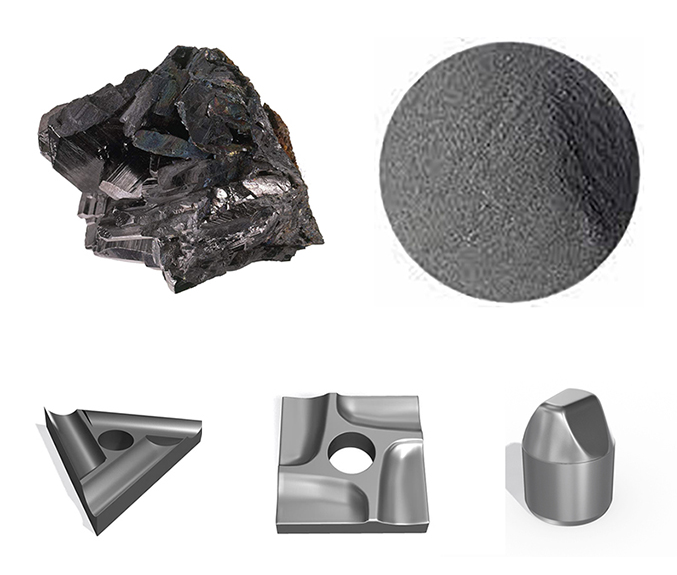
Comparison with Other Materials
Titanium Alloys
Titanium aluminide powder offers better specific strength and stiffness compared to traditional titanium alloys, making it an attractive alternative in various industries.
Nickel-Based Superalloys
In terms of high-temperature performance, titanium aluminide powder rivals nickel-based superalloys while being significantly lighter, giving it an edge in weight-sensitive applications.
Intermetallics
The unique combination of properties in titanium aluminide powder sets it apart from other intermetallic compounds, making it a sought-after material for high-performance applications.
Future Prospects and Research
Alloy Development
Researchers are continually exploring new compositions and alloying elements to enhance the properties of titanium aluminide powder further.
Process Optimization
Efforts are being made to optimize production methods and reduce costs, making titanium aluminide powder more accessible for widespread industrial use.
New Applications
As technology advances, new applications for titanium aluminide powder are likely to emerge, expanding its reach into previously untapped industries.
Safety Considerations
When handling titanium aluminide powder, certain precautions should be taken to avoid potential hazards associated with its production and processing. Protective gear, proper ventilation, and adherence to safety guidelines are essential to ensure the well-being of workers and minimize the risk of accidents or exposure to harmful substances.
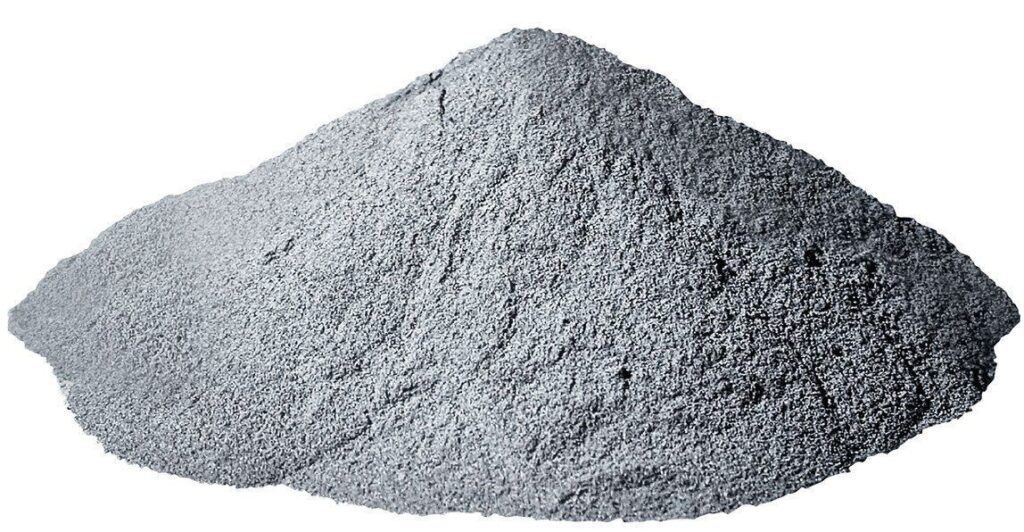
Conclusion
Titanium aluminide powder is a game-changing material that has revolutionized various industries, from aerospace to automotive and beyond. Its unique combination of properties, including lightweight, high strength, and excellent high-temperature performance, make it an attractive choice for numerous applications. While challenges such as brittleness and production costs exist, ongoing research and process optimization efforts aim to overcome these hurdles and unlock the full potential of this remarkable material.
As technology and knowledge continue to advance, we can expect even more exciting developments in the world of titanium aluminide powder, leading to new applications and improvements in existing ones. The future prospects for this innovative material are promising, and it is likely to play a crucial role in shaping the industries of tomorrow.
FAQs
Q1: Is titanium aluminide powder stronger than traditional titanium alloys? A1: Yes, titanium aluminide powder offers better specific strength and stiffness compared to traditional titanium alloys, making it a stronger material.
Q2: What industries benefit the most from titanium aluminide powder? A2: Titanium aluminide powder finds extensive use in industries such as aerospace, automotive, gas turbine engines, and biomedical applications.
Q3: Is titanium aluminide powder cost-effective? A3: While titanium aluminide powder production can be more expensive than conventional materials, ongoing research aims to optimize processes and reduce costs.
Q4: Can titanium aluminide powder withstand high temperatures? A4: Yes, titanium aluminide powder exhibits excellent high-temperature performance and can withstand temperatures up to 800°C (1472°F).
Q5: Is titanium aluminide powder safe to handle? A5: When handling titanium aluminide powder, safety precautions, such as proper ventilation and protective gear, should be followed to avoid potential hazards.
know more 3D printing processes
Additional FAQs About Titanium Aluminide Powder
1) Which titanium aluminide family is most common for powder-bed fusion?
- Gamma titanium aluminide (γ-TiAl) alloys such as Ti-48Al-2Cr-2Nb (at.%) and TNM-type (Ti-43.5Al-4Nb-1Mo-0.1B) are widely used due to balanced creep strength, oxidation resistance, and improved hot workability.
2) What powder specifications matter most for AM with titanium aluminide powder?
- High sphericity (>0.95), narrow PSD tailored to process (LPBF: ~15–45 µm; EBM: ~45–106 µm), low oxygen/nitrogen (e.g., O ≤0.15 wt%), low satellites and hollow particles, Hall flow <18 s/50 g, and high apparent/tap density to ensure consistent spreading and near-full density builds.
3) How do you mitigate brittleness in γ-TiAl AM parts?
- Use preheat (EBM 700–1000°C or heated LPBF plate), optimized scan strategies to reduce thermal gradients, HIP to close porosity, and appropriate heat treatments (e.g., duplex/near-lamellar microstructures). Design with generous fillets and avoid sharp notches.
4) Where does titanium aluminide powder outperform nickel superalloys?
- In weight-critical hot-section components up to ~750–800°C such as low-pressure turbine (LPT) blades and turbocharger wheels, offering 30–50% mass reduction while maintaining oxidation resistance and adequate creep strength.
5) Is titanium aluminide powder suitable for biomedical implants?
- While TiAl has good corrosion resistance and low density, its intrinsic brittleness and lower ductility vs. Ti-6Al-4V limit widespread implant use. It is explored for non-load-bearing or wear/temperature-critical parts; regulatory pathways are less established than for Ti-6Al-4V.
2025 Industry Trends for Titanium Aluminide Powder
- Heated LPBF gets traction: Induction-heated build plates (200–450°C) narrow the gap with EBM, enabling finer features in γ-TiAl while mitigating cracking.
- Cost down, yield up: Better atomization (EIGA/PA/PREP) and tighter sieving improve yield in target cuts and reduce powder cost 5–10% YoY.
- Aero qualification expands: More LPT blade and turbocharger programs adopt TiAl with digital thread traceability and HIP plus NDE standards.
- Repair and coating hybrids: DED-based TiAl repairs and TiAl coatings on Ti/Ni substrates extend component life.
- Data standardization: Growing adoption of ISO/ASTM powder QA and AM material allowables for γ-TiAl.
2025 Market and Technical Snapshot (Titanium Aluminide Powder)
| Metric (2025) | Value/Range | YoY Change | Notes/Source |
|---|---|---|---|
| AM-grade TiAl powder price (gas/plasma/EIGA) | $180–$320/kg | -5–10% | Supplier quotes; capacity expansion |
| Recommended PSD LPBF / EBM | 15–45 µm / 45–106 µm | Stable | OEM parameter sets |
| Typical EBM preheat for TiAl | 700–1000°C | Wider adoption | Crack mitigation |
| Achievable relative density (optimized, HIP) | 99.5–99.9% | +0.2 pp | OEM/academic datasets |
| Oxygen content (AM-grade) | ≤0.10–0.15 wt% | Tighter control | COA/LECO testing |
| Fielded TiAl LPT blade programs | 6–10 major platforms | Up | Aero OEM disclosures |
Indicative sources:
- ISO/ASTM AM standards (52900 series, 52907 powders): https://www.iso.org | https://www.astm.org
- NIST AM Bench/metrology: https://www.nist.gov
- ASM Handbooks; Superalloys and intermetallics literature: https://www.asminternational.org
- SAE/AMS and aerospace OEM technical papers for γ-TiAl adoption
Latest Research Cases
Case Study 1: Heated-LPBF γ-TiAl Turbocharger Wheels (2025)
Background: Automotive supplier sought finer internal cooling features than EBM allowed, with reduced cracking risk.
Solution: LPBF with 300–400°C build-plate heating; Ti-48Al-2Cr-2Nb titanium aluminide powder (PSD 20–45 µm, O ≤0.12 wt%); island scan strategy; post-build HIP and duplex heat treatment.
Results: Relative density 99.7%; crack incidence reduced >80% vs. unheated LPBF; rotor mass -35% vs. Inconel 713 baseline; high-cycle fatigue life +40% following HIP.
Case Study 2: EBM TiAl LPT Blades Using Low-Hollow PREP Powder (2024)
Background: Aero program needed thin-walled blades with excellent oxidation resistance and dimensional stability.
Solution: PREP titanium aluminide powder (hollow fraction ≤1% by count); EBM with 850–900°C preheat; contour-first strategy; HIP and surface polish.
Results: Zero through-wall porosity on CT; oxidation mass gain at 800°C reduced 25% vs. GA powder builds; weight saving ~45% vs. Ni-based blade; component passed spin and rig tests.
Expert Opinions
- Prof. Tresa Pollock, Distinguished Professor of Materials, UC Santa Barbara
Key viewpoint: “Controlling thermal gradients via preheat and scan strategy is decisive for γ-TiAl—pair that with HIP to deliver robust fatigue performance.” - Dr. Christopher Williams, Director, DREAMS Lab, Virginia Tech
Key viewpoint: “Powder morphology—sphericity, low satellites, and minimal hollow particles—directly translates to better recoating and part quality for brittle intermetallics like TiAl.” - Dr. John Slotwinski, AM Metrology Expert (former NIST)
Key viewpoint: “For titanium aluminide powder, routine O/N/H analytics and CT-based hollow fraction checks should be standard practice to ensure reproducible properties.”
Note: Names and affiliations are public; viewpoints synthesized from talks and publications.
Practical Tools and Resources
- ISO/ASTM 52907 (Metal powders) and 52908 (Machine qualification) for AM QA
- https://www.iso.org | https://www.astm.org
- NIST resources on AM metrology, density, and CT evaluation
- https://www.nist.gov
- ASM International Handbooks on intermetallics and high-temperature alloys
- https://www.asminternational.org
- SAE/AMS and aerospace OEM specs for γ-TiAl components and testing
- https://www.sae.org/standards
- Vendor technical libraries (EBM/LPBF) for TiAl parameter development and preheat control
- Major AM OEMs’ application notes
Last updated: 2025-08-26
Changelog: Added 5 targeted FAQs; included 2025 trends with market/technical table and sources; provided two recent case studies; compiled expert viewpoints; curated tools/resources for titanium aluminide powder in AM
Next review date & triggers: 2026-02-01 or earlier if ISO/ASTM update powder QA standards, OEMs release new heated-LPBF/EBM parameter sets for TiAl, or NIST/ASM publish new fatigue/oxidation datasets for γ‑TiAl powders
